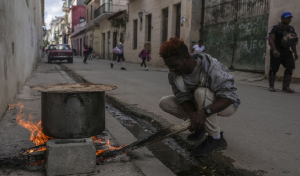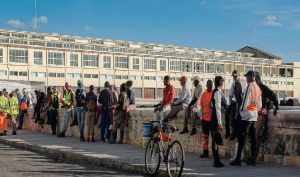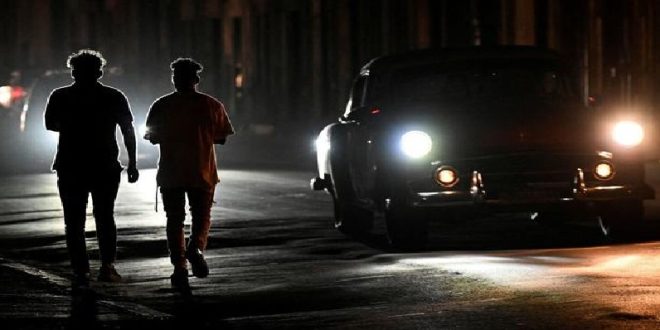06-12-2024
HAVANA: Cuba’s national power grid has collapsed again, leaving millions of people across the Caribbean island without electricity in the latest such failure in recent months.
Authorities said the Antonio Guiteras power plant in Matanzas, the country’s top electricity producer, shut down about 2am (07:00 GMT) on Wednesday, prompting the grid collapse.
 The Ministry of Energy and Mines said in a post on social media that it was working to restore power.
The Ministry of Energy and Mines said in a post on social media that it was working to restore power.
Cuba’s oil-fired power plants, obsolete and struggling to operate, reached a full crisis this year as oil imports from Venezuela, Russia and Mexico dwindled.
The system failure on Wednesday morning left the capital, Havana, almost completely in the dark, the Reuters news agency reported, quoting a witness.
Lights before sunrise could be seen only in a handful of large hotels and government buildings across the city’s skyline.
Reports of blackouts elsewhere in Cuba on social media suggested the entire island of 10 million people was without power although the government had yet to confirm the extent of the outage.
Later Wednesday morning, power began to be restored gradually in some parts of the country, including Havana.
Cuba’s Minister of Energy and Mines Vicente de la O Levy said later in a televised address that service would be fully restored by Thursday.
Cuba’s power grid collapsed multiple times in October as fuel supplies dwindled and Hurricane Oscar struck the far-eastern end of the island, prompting authorities to close schools and nonessential workplaces.
In November, Hurricane Raphael knocked out the grid again as it made landfall on the island as a Category 3 storm.
 The storm tore across Cuba with winds hitting 185km/h (115mph), damaging homes, uprooting trees and toppling telephone poles.
The storm tore across Cuba with winds hitting 185km/h (115mph), damaging homes, uprooting trees and toppling telephone poles.
The Cuban authorities have blamed previous outages on difficulties in acquiring fuel for power plants, which they have attributed to the tightening, during Donald Trump’s first presidency, of a six-decade-long United States trade embargo but the country has also experienced a broader economic crisis marked by soaring inflation and shortages of medicine, food and water.
On 7th of last month authorities in Cuba say they are slowly restoring electricity to the eastern half of the island after the entire country lost power when Hurricane Rafael knocked out the electrical grid.
Ten million people were left in the dark on Wednesday after the storm tore through the island with winds hitting 185 kilometres per hour (115 miles per hour), damaging homes, uprooting trees and toppling telephone poles.
The Energy and Mines Ministry said on Thursday it was making progress restoring power in parts of eastern and central Cuba but warned it would take longer in western parts of the island that were hit hardest by the hurricane. The capital, Havana, home to two million people, was still without power late on Thursday.
After the passage of the Category 3 storm overnight, Rafael lost intensity as it entered the Gulf of Mexico, according to the United States National Hurricane Center (NHC).
Forecasters warned Rafael’s maximum sustained winds of 185km/h (115mph) could bring “life-threatening” storm surges, winds and flash floods to Cuba, a nation highly vulnerable to bad weather due to its older, poorly maintained housing and public infrastructure. (Int’l Monitoring Desk)
 Pressmediaofindia
Pressmediaofindia




